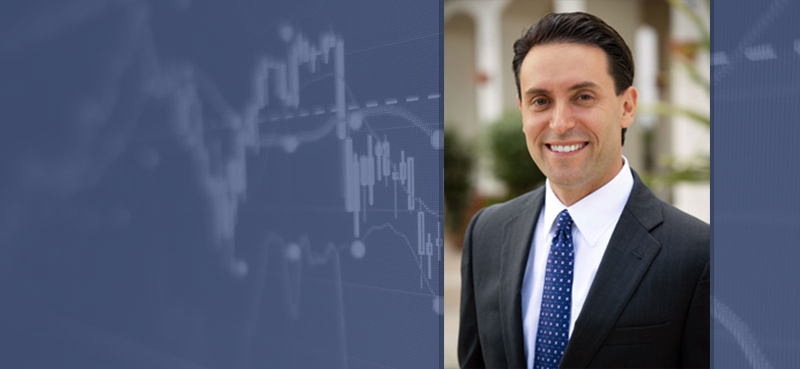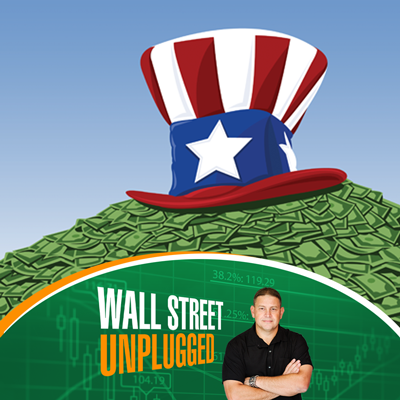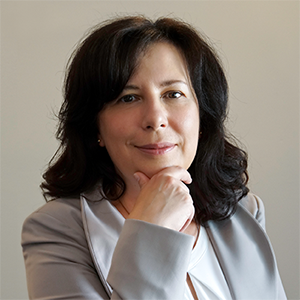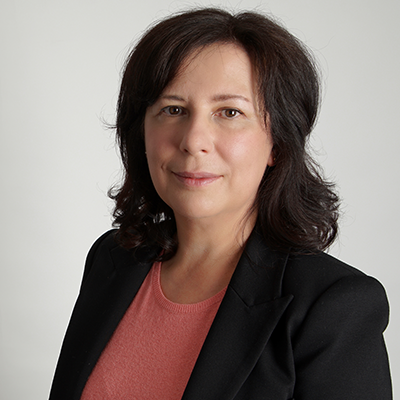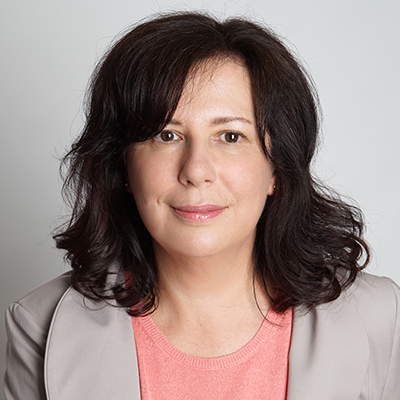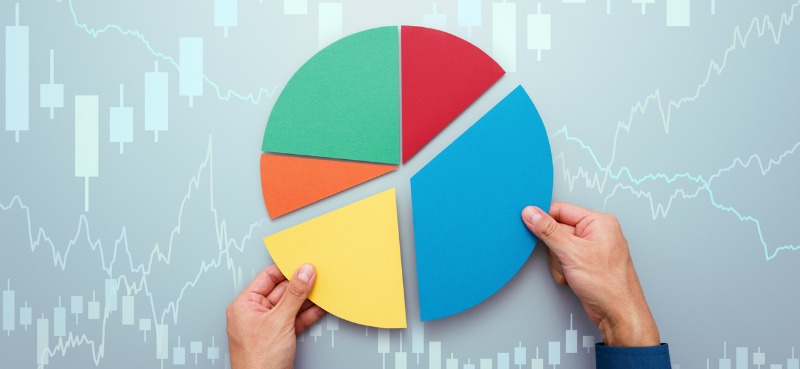Frank Curzio
A financial phenomenon you can’t afford to ignore…
Marc Lichtenfeld, chief income strategist at The Oxford Club, is back on the show to discuss the economy… income opportunities… and biotech.
He explains why the market pullback is great for income investors… how to accelerate the long-term compounding process—a financial phenomenon most investors ignore… and why he’s looking at bonds for income.
Income investors should also consider Unlimited Income, where the average recommendation is still up… and spitting out consistent cash payments month after month—despite the recent pullback.
Marc shares how he finds great bonds… how to avoid simple bond investing mistakes… and why investors don’t need to worry about stocks when they practice one simple bond strategy.
We also discuss the volatility in biotech… and the solid risk/reward setup he sees right now.
Wall Street Unplugged | 941
A financial phenomenon you can’t afford to ignore…
Announcer: Wall Street Unplugged looks beyond the regular headlines heard on mainstream financial media to bring you unscripted interviews and breaking commentary direct from Wall Street right to you on main street.
Frank Curzio: How’s it going out there? It’s September 1st. I’m Frank Curzio, host of the Wall Street Unplugged podcast, where I break down the headlines and tell you what’s really moving these markets.
Frank Curzio: I’ve got a great interview coming your way. A good friend, great analyst, it’s Marc Lichtenfeld, Chief Income Strategist at the Oxford Club, editor of seven newsletters, including the Oxford Income Newsletter, and also several trading services. So, Marc and I go way, way back, to TheStreet.com days. Haven’t had him on for a while. No reason why, he’s been crazy busy. But he is in Florida, and I like seeing him all the time, and just really one of the good guys in this business. So, Marc is also an author. He’s got great books. Two of them, “Get Rich with Dividends: A Proven System for Earning Double-Digit Returns.” Also, “You Don’t Have to Drive an Uber in Retirement: How to Maintain Your Lifestyle Without Getting a Job or Cutting Corners.” So, these are both award-winning books. The second one being ranked number one on Amazon’s Best Seller List.
Frank Curzio: I always have great interviews with Marc. So, if you’re a new subscriber to our podcast, listening just for the past couple of months, or if you’ve been around 10 years, you know that Marc is great when we can go anyway and we do. We’re actually going to talk about bonds and all kinds of different ideas and stocks, but that’s also good. What I know you guys like is he gives lots and lots of ideas and you’re going to get at least five or six, probably more stock picks from this interview. And let’s get to it right now. Marc Lichtenfeld, what’s going on, man?
Marc Lichtenfeld: Hey, Frank. Great to see you.
Frank Curzio: It’s been a while. Too long, too long. I mean, we’ve known each other for a very, very long time, TheStreet.com days, where I know what your passion is, right? We’re going to talk about income. We’re going to talk about bonds, but I love talking about biotech, because you always help me out incredibly in that sector. And I still love biotech. I really do. I just, there’s something about it, just to see how companies manage themselves and how doctors, once they get these things approved, they’ll go into phase three. They turn to real companies and just the whole process. It’s, I’m always intrigued by it.
Frank Curzio: But I want to start with the overall economy. I mean, we’re seeing the Fed in, “I’m going to raise rates, no matter what,” mode. Yet, you’re seeing the effects in a lot of different industries, especially housing, especially retailers. It’s happening very quick. What are your thoughts here? I mean, it seems like income value, finally in favor after 10, 12 years, which is probably right up your alley, but what are your thoughts on the economy, the rest of the year, and into next year? Because right now, it seems like a pretty scary environment and I know a lot of people are nervous.
Marc Lichtenfeld: Yeah, it does. Obviously, we’re in a recession now though, the latest numbers were, if they stay this way, a mild recession. And then, you have a lot of forecasts that are pretty wide ranging. Some people think it’s going to become a very deep recession. Others think it could be quite mild, and maybe we even come out of it quickly. It’s really difficult to say, especially when you factor in inflation, because nobody really knows where that’s going. I mean, we had sky high gas prices, which have come back down to more normal levels now, but I’m not seeing prices going down in the supermarket. I don’t think that most businesses are seeing their prices come down. Actually yesterday, my wife and I were talking about gas prices and she said, “So, does that mean everybody’s going to start lowering their prices?” And I said, “Probably not. I don’t. If they can get away with it, they’re certainly not going to.”
Marc Lichtenfeld: So, I think it’s a little too early to say. I would love to tell you, “This is where things are going.” But I think with inflation right now and seeing where that ends up, and what the Fed has to do to get it under control and what effect that’s going to have, I think it’s just a little too early to say where the economy is going. If you look at the stock market as a forward looking indicator, which it often is, we had that huge drop from the beginning of the year. That certainly suggested recession. Then we had a pretty big bounce. So, is that simply a bear market rally or was that, was the bottom end? So again, a little early to say. I’m leaning towards assuming that we are going to go down, whether we make a new low, I don’t know. But if we go down, then that would suggest to me, at least that we’re not out of the woods yet, as far as recession in the economy.
Frank Curzio: So, you have several newsletters and income newsletters, which I mentioned already before we actually got on the air. Talk about income. It seems like an area that people are like, “Oh, okay, I get it now.” We have a bear market. We have the Fed, not there to pick us up. And I looked at the S&P 500, and I think it’s around a one point percent year, which surprised me. I thought it’d be higher right now with the S&P 500 down. But I mean, it’s usually, we’ll go historically, 4% dating back to the fifties. But it’s usually closer to 1.2%, at least over the past 10 years. Yet, you’re seeing a lot of stocks pay a much higher dividend than that. More than double that and really good names.
Frank Curzio: What are you telling your clients, people who follow you and follow your newsletters? Because, it seems like there’s a lot of good names in there that are not just paying a high dividend. And I know you covered this sector for a long time. You’re not just going to buy something that pays a high yield, but the underlying company, the growth behind it, this seems like there’s a lot of good names out there where you have a lot of value, you have growth, and also that income, which everybody craves for.
Marc Lichtenfeld: Yeah. And it’s interesting because a year ago, a little bit longer, it was really difficult to find decent yields with that growth and fair valuations, because the stock market was so hot for so long. So, to find a stock with even a 4% yield that wasn’t, let’s say a REIT or an MLP was really, really difficult. And even some of the REITs were down to 4% yield. So, it was really hard. When we had that sell off, obviously, that’s painful when you look at your statement, but if you’re a long term investor, that shouldn’t matter so much. But what’s been great for income investors is now we can get into some names where you’re getting four or 5% yields on some quality stocks. And if you’re looking at the REITs and MLPs, you can get that six, seven, even 8%. So, it’s certainly gotten a lot easier for income investors because of the bear market and what I always tell my investors, they should be in these stocks for the long-term.
Marc Lichtenfeld: These are not stocks you buy to hold on for a year, collect your 4% and get out. So, if you’re in for the long haul, who cares where the stock market is today if you’re planning on selling five, 10 years from now. But in the meantime, you are collecting that income, which helps offset some of the pain a little bit. And if you’re reinvesting those dividends, if you don’t need to collect the income today, then you get to do that at lower prices, which you get to buy more shares, which generates even more dividends. And it really accelerates the compounding machine. So, I love a bear market for the long term investor, who’s investing and reinvesting in dividend stocks. Just for that exact reason, it really accelerates your wealth down the road.
Frank Curzio: And I just pulled some research here. So, I have a piece of paper, a handy piece of paper that I wrote this down on. So it’s, the names that are, have a 4% yield or higher. This is from today. So, Intel, Gilead, or just 4%. So, Best Buy, Whirlpool, VF Corp. And then you have 5% yielders and you think, “Well, what’s going on underneath the hood? Maybe that.” You’ve got IBM, Newmont, which is in a great position. We know gold is horrible right now, but these guys produce for under a thousand dollars an ounce. Just printing money right now, even at 16, 1700, they’re making money. Dow chemical, Philip Morris, Verizon, AT&T, Kinder Morgan, I mean, these are quality names. We’re not talking about garbage names here. Oh, this one pays a high dividend or whatever, we’re seeing the stock come down and you worry about earnings, or debt default or anything like that.
Frank Curzio: These are quality names paying this dividend. And, you mentioned something about compounding. Why is it the younger generation, if you mention that, it’s like a switch that just turns off? They’re just not interested in it. When you’re like, “Look at this 30-year, if you compound from,” I mean, I know 30 years is a long time, but when we get to our age, you see how fast it happens. And I’m like, “Man, if you’re 20 years old, just put away a hundred bucks here.” And then why is it that they’re so turned off? Is it the Bitcoin generation, the crypto generation? I want to get rich tomorrow? Because man, I wish I knew what they did when I was that age and would try to explain it to them, but they don’t want to listen.
Marc Lichtenfeld: Yeah. I think people do want to get rich quickly. I’m going to sound like an old man here, but I think that generation has a shorter attention span due to all the technology they consume, and a 24-hour news cycle. Just everything is just much faster in their lives than it was with us. So, I was unbelievably lucky, that when I was 21 years old, I read about compounding and read about the effects and started putting money away. When I was 21 years old, I maxed out my IRA at that point, which was $2,000 a year, because I had heard just some crazy statistics about if you invested from 21 to 31 and stopped, you would have more money at 65, than if you started at 31 and invested all the way to 65, the same amount of money every year. So, I continued to invest past 31, but that made a major impact on me.
Marc Lichtenfeld: And, I just think that the younger generation, maybe don’t think about 50 and 60 years old, and that it could ever happen. And to be honest, when I was 21 years old, I really wasn’t that concerned about being 60 and retiring someday. I was just getting started. But somewhere in the back of my mind, I knew that was out there and I should probably do this, because I looked at the numbers and numbers have always made sense to me, when it’s just kind of out there in black and white. So, that’s what I started doing.
Marc Lichtenfeld: And as far as getting younger people involved, I think one of the problems, they don’t really teach it in school. So, they don’t teach about the dangers of compounding with credit cards, and they don’t teach about the benefits of compounding. So, if they’re not getting it anywhere, but everything else that they’re hearing is buying AMC options on Reddit, and another kind of get-rich-quick schemes or strategies, I can see why it’s boring to put few thousand dollars away a year in Intel and JP Morgan and wait for 20, 30 years. Yeah, I totally, I get it. They shouldn’t be doing it, but I get it.
Frank Curzio: Yeah, I know. I get it, too. I mean, that really, 25, I was not taking life seriously. I was having a lot of fun. That’s why when I go to conferences, or speak at conferences, and I see young people there come up to me, I’m like, “What are you doing here?” I’m like, “You should be drinking, getting drunk, having fun, going to clubs right now.” It’s like, yeah. I’m always so impressed. I’m like, “Wow.” Which is pretty cool.
Frank Curzio: But one of the things that you’re doing and you’ve been doing is getting into bonds. And that seems like a very, very hard sell for individuals, because you’re not just, and I’ve done the research. I looked up some of the stuff that you’re doing. You say, “Listen, don’t buy a fund,” which you get close end funds, mutual funds and have bond exposure. You’re talking about individual bonds. It makes all the sense of the world. I know exactly why you’re doing it, but how difficult is that to get people to buy this? Because again, I would think that’s catered to someone that may be looking for that income, retirement. It’s they’re older and just, I don’t know if there’s too much of a learning curve of buying it where it’s pretty easy to buy, but just people have to learn a little bit compared to buying a simple stock.
But how do you get people interested in that? And what do you see in the bond market, because what we saw is the bond market get crushed. So, how are you talking about it, mentioning it, because this is an area that seems ripe to do a lot better, but for individual investors, I feel like it’s a hard sell.
Marc Lichtenfeld: Surprisingly, it isn’t when they understand the very basic concept. So one of the things, as you mentioned, that I say, “Stay away from bond funds and bond ETS, because they will go down when interest rates rise.” And I certainly expect interest rates to continue to rise. With an individual bond, you buy an individual bond, the price may go down while you own it if interest rates rise. But at maturity, you’re going to get your money back or you’re going to get the par value, which is a thousand dollars per bond in almost all cases. So, if you buy a bond at a thousand dollars or maybe buy it at a slight discount, $950, it doesn’t matter if tomorrow the bond is worth $90. Your plan is to hold it until maturity. Now, if it goes up and we can take a profit, we certainly will, but that’s not the plan. The plan is to hold it until maturity.
Marc Lichtenfeld: As a result, also, we’re not buying long-term bonds. I’m trying to stay 2026 and earlier maturities. I want to keep them fairly short. So, the reason that the bond funds and ETFs will lose money, is because when you go to sell one of those securities, meaning that the fund or the ETF, the price that you’re going to get is the value of the assets. And if the bonds have fallen in price, then the value of ETF will go down and that’s the price you’ll get. So, you’ll lose money if those prices go down. With the individual bond, again, you’re only planning to hold it to maturity. You don’t care. You’re not selling when the price is down. And if you think you might have to, you shouldn’t buy the bond. If you’re buying a three-year bond, and you think you need the money in a year, don’t do it. Only go, only buy the bond that you plan to hold until maturity.
Marc Lichtenfeld: So, once people understand that concept, it’s not a particularly difficult sell, because they do see that it’s terrific income. A lot of, you can get really high quality bonds now, paying three, 4%. And if you go down a little bit less in the credit rankings, then you’re getting five, 6%, maybe even more. And the thing is, even when you go to the lower credit bonds, the overwhelming majority of bonds pay and do exactly what they’re expected to. The long-term default rate for junk bonds is 4%. And that is very much concentrated in the very lowest rated bonds. So, you can buy a bond, say a double B bond, which is not particularly high. It’s not at the floor either. Maybe get a 6% yield or maybe even higher. And, you can feel pretty darn confident that you’re going to get your money back at the end of maturity.
Marc Lichtenfeld: So, when people get that, and they also get that, it doesn’t matter what the stock market does, you’re going to get your money back. Actually, I’m writing an article now for the Oxford Income Letter where we showed JP Morgan is down, I think it was about third over the past year. Whereas, its bonds have fallen, I want to say roughly 10%. Again, we don’t care because we’re going to hold the bond to maturity. But even then, when stocks tank, bonds are a nice place to be because you’re not getting hit as hard when markets are crashing. Bonds are wonderful.
Frank Curzio: I know, see, I mean, usually that’s the case. I know bonds have really fell off tremendously this year. And even before that, but what is your methodology where you talked about double B, talk about investment grade. What’s your methodology, because you have to look under the hood for your investors, to see if these guys are generating, is it just cash flow? Is it earnings? The history of earnings? Again, you have a lot of rating services that do a lot of the work for you and could rate these, but also there’s people that could look even further under the hood and say, “Okay, these guys should be investment grade and they’re not.” And that’s where you’re going to pay a higher yield and get a better price on your bond. But what’s some of the methodology that you use, that you look for to really recommend a bond?
Marc Lichtenfeld: Sure. So, I don’t consider the rating agencies’ ratings too much, because don’t forget these were the same guys that were rating all those mortgage securities, triple A, when they were worthless. So, what I look for as far as ratings is to see if something’s maybe undervalued. So, if I’m looking at a double B bond and the yield is too low, then I’ll say, “Well, we’re not getting paid enough for that level of risk,” and vice versa. Or, “We’re getting paid very handsomely for this level of risk.” So, based on what the market thinks.
Marc Lichtenfeld: So what I look for, cash flow is, it’s of the utmost importance, very similar to what I look for in dividends. The balance sheet. I want to know that there is some cash, that they’re not so heavily in debt that they can’t make their interest payments. And most importantly, or I should say as importantly, I want to see where the bond that I’m interested in falls, as far as their maturity schedule.
Marc Lichtenfeld: So, if I’m looking at a 2024 bond, but they have a ton of bonds maturing in ’23 and that means they’re going to probably have to raise more money, sell more bonds to pay off the 24s, I’m not interested. I want to be first in line for that and let the bond investors behind me, a few years down the road, worry about how they’re going to get paid. So, I really try to be at the head of the line, or if I can’t be the first maturity, then I want to know that there’s not a large maturity ahead of me, so that there’s not a concern about the bonds getting repaid.
Marc Lichtenfeld: And that being said, if a bond’s rate fairly high, theoretically, they shouldn’t have a problem raising money, if they have to under somewhat normal circumstance. I mean, if it’s 2008, again, then that might be a little different. But, so basically I want to see very solid financials, and I want to see that the bonds are not going to have a problem getting repaid. And the overwhelming majority, it’s never a problem.
Frank Curzio: Yeah. That makes sense. So, getting back to the income side, which you could throw bonds in there, too. What people love when you’re on, is you share some of your ideas. What are some of your ideas out there for, I guess stocks. Let’s go with stocks. I mean, are you looking at yield specifically? Do you look under the hood to see which ones are growing? Obviously with energy, you’re still getting three, three and a half percent dividends with Exxon, Chevron, the biggest, right? And they seem like the strongest in terms of earnings power going forward right now. And I know oil’s come down, but still is very, very strong, compared to a year ago. So, what are some ideas that you’re sharing? If you can, nothing that you give away to people who are paying for your newsletter, but what are some of the areas or maybe some individual things that you’re looking at, that pay a nice income that people could buy.
Marc Lichtenfeld: Yeah. Also, I do love energy. We’ve held Chevron forever in the portfolio. Some of the midstream companies also, I’ve been a fan of for a long time and continue to be. I mean, it’s always described as just a toll booth for oil and gas. And I love the fact that they don’t go through the boom and bust cycles the way some of the oil producers do.
Marc Lichtenfeld: And I also like some of the alternative energy companies. A company like NextEra Energy Partners, which is one of the leading solar and wind companies in the country. It’s a subsidiary of NextEra Energy, which is an energy powerhouse, utility powerhouse right here in Florida, as, you like. And they pay a very solid dividend yield. Plus, it is tax deferred because it is a partnership. So, it is a return of capital. So, you don’t pay any taxes on the dividend in the year it’s received. It reduces your cost. And eventually down the road, when you sell it, you’ll pay tax on a larger capital gain. But all those years that you’re collecting the dividend, there’s pretty much no taxes on a regular year. So, I love that.
Marc Lichtenfeld: Especially as we’re seeing, not just more legislation geared towards that, but a lot of it does make economic sense… Especially if oil prices continue to go higher, there’s just going to be more solar and wind projects happening. And, have a company like NextEra Energy. This is not a bunch of granola eating, kumbaya singing hippies, setting up a windmill in a field. I mean, these are very serious, conservative business people. So, if they’re investing heavily in this, then there’s money to be made here.
Marc Lichtenfeld: And then also of course, healthcare, any of the sectors that should thrive and survive recession. So healthcare, consumer staples, anything like that, I really want to be focused on those companies, that if we do hit a rough patch for the next year or so, that these companies will be able to continue to grow their revenues, grow their cash flow and pay that dividend.
Frank Curzio: No, it makes a lot of sense. So, one of the areas that I don’t think you cover anymore at Oxford, say is biotech. And I remember, is it Adam Feuerstein?
Marc Lichtenfeld: Yeah. Yeah.
Frank Curzio: I don’t know if he still at The Street or not, but he used-
Marc Lichtenfeld: No, he’s with STAT News.
Frank Curzio: I mean, he became very big at the time, but a few years ago. I haven’t really followed too much, but I know you used to cover biotech. You used to go to the annual JP Morgan Healthcare Conference, used to give me updates and everything. I know it’s got to be a passion still. Are you looking at biotech? Is biotech, when you look at that industry and people, it topped at February, right? I mean, that’s when they hit the top, which was well before the rest of the market. And then you saw this just massive collapse. And we’re talking about February 2021. I felt like the leveraging in this industry was incredible, because some of these names were trading down 80, 90%. I mean, these are good names. These were names that were generating revenue. And I was like, this is just a massive leveraging taking place, which is something that I think is prime for guys like you. Are you still following that industry? You have any names? Because, I always know that was really a passion of yours.
Marc Lichtenfeld: Yeah. So, I still do follow it. I don’t have the Biotech Newsletter anymore, so I’m not following it on as much on a day to day basis. And when I was doing that, I was really focused on companies that would have a catalyst, and let’s say generally within six months. And that was roughly how long I was planning on holding a stock for. Sometimes was longer. Sometimes was less. These days, I’m doing much more active trading. So, it’s not much focused on catalyst. Basically, if the sector’s rising and I find some names that look exciting… But that being said, one of my favorite stocks is Ligand. LGND is the symbol. And what I like about them is they are-
Frank Curzio: Royalties, right?
Marc Lichtenfeld: Yeah. And they’re not focused on getting that clinical trial data to come in strong, or that one FDA approval that’s going to make or break the company. They have well over a hundred different compounds. Some there are still in development. Some are licensed to other companies that are on the market, or the big pharmas are developing them. So, when that happens, the risk is off for Ligand. And basically, when something positive happens, like a strong clinical trial, they’ll usually get a milestone payment. And when it hits the market, they just sit back and collect the royalties. So, really what their business model is, find these molecules, find these compounds, develop them at very, very early stages and then license them out, let somebody else take on all the risk. And then, they just sit back and collect the money.
Marc Lichtenfeld: And so, I really like that model because it’s not so boom and bust like it is for some biotechs. You saw Moderna did nothing for years. I mean, they couldn’t get anything across the goal line, and then suddenly COVID happened. And they’re one of the biggest names in biotech. So, it’s kind of nice not to just be staring at your computer screen on the day that you know that an FDA approval is coming out. Just glued, just hoping that something positive happens, because you know the stock could move 50% either up or down, depending on the news. So, those are the kinds of things I’m looking at these days.
Frank Curzio: Yeah. The volatility in that, you could look any day. I mean, you can go to FINVIZ, free sites, and you’ll see the winners or losers, small cap. You’ll always see those like crazy. They just, they’re on Loser’s List, the Winner’s List of 50%, a hundred, 200%, down 60, 70%. It is a crazy market. And no, I see it.
Frank Curzio: So, I want to get to the last thing here, because one of the things that I love, love is that you are a ring announcer, and you’ve done it here where I live once, and this is a while ago. So, I saw it firsthand, and then I’m sure you can go and see different videos of it. Are you still doing that? I mean, boxing is MMA, because man, I love watching it, man. That is really seriously. I would quit everything you do and do that. You’re amazing. And everybody’s got to see you on YouTube. Whenever I see it, I’m like, “Whoa, this guy’s great. I didn’t expect that.” I’m like, “This guy’s awesome.” It’s really cool.
Marc Lichtenfeld: Yeah. It’s kind of a very bizarre side hustle that I started doing a long time ago and yeah, I’ve been a boxing fan since I’m 12 years old. So, it is the most fun thing you could possibly imagine, to be standing in the center of the ring, getting the scorecard first, telling everybody who won the fight and getting to talk to the boxers. And I get to meet some of the guys that I grew up watching. So, it is so much fun. Yeah. I continue to do it, working for a promoter called Pro Box Promotions. They have a great app. It’s 18 bucks a year and you get all their fights, and they have a lot of up and coming fights. And, a couple of world title fights here and there, and they put on a great show. So, it’s so much fun. I absolutely love it. And every time the phone rings to do it, I can’t wait to get to the event.
Frank Curzio: When’s your next one?
Marc Lichtenfeld: The next one is early October, I think.
Frank Curzio: You got to let me know. I got to tweet it out. Everybody’s going to watch you.
Marc Lichtenfeld: I’ll let you know.
Frank Curzio: Seriously. You got to-
Marc Lichtenfeld: It’s in Florida, so maybe you can come by.
Frank Curzio: All right. Definitely. Definitely. So, it can’t be that far from you, right? Aren’t you still in Florida, by Palm Beach or is it Delray?
Marc Lichtenfeld: Yeah. Yeah. I’m Delray. And then this fight is near Tampa. So, not terribly far.
Frank Curzio: No, not too far. Not too far. Well Marc, listen, it’s been too long. Got to have you on a lot more. I know my guests love you, because you always tell it how it is, and you always share lots and lots of ideas. So, I miss you, man, got to talk a little bit more, got to see each other face-to -ace and in-person, because it has been too long. But, I really appreciate you coming on and hopefully come on again soon.
Marc Lichtenfeld: Yeah, my pleasure. And, if I can just do a quick shameless plug, if anybody’s listening?
Frank Curzio: No, it’s not shameless. I was just going to say before I go, if someone wants to learn more about you, and it’s not just the Oxford Club, but there’s other places as well. Go ahead.
Marc Lichtenfeld: Yeah. So, if you want to learn, especially more about the bonds and what we were talking about, you can go to stock quitters 1, the number one, stockquitters1.com, or go to oxfordclub.com. There’s plenty of stuff on me there.
Frank Curzio: So, let me get this straight. It’s stockquitters1.com, which I’m definitely promoting this right now. And then, which I’m not getting paid for. But, you actually recommend stocks in your income newsletter.
Marc Lichtenfeld: Yes. Yes we do. Because stock, the whole idea behind Stock Quitters is for people that can’t handle the volatility, the kind that we’ve been seeing. And whether they just can’t sleep at night, and they’re just kind of done with the market. And I know plenty of people have had that experience in the last few months, or perhaps they’re approaching a milestone. For me, both of my kids are in college right now. So, as we’ve gotten closer to them going to college, I scaled back in their 529. I took money out of stocks and stock funds and put it into fixed income and cash, because I couldn’t have the exposure to stocks in that particular account. So, for part of my finances, I was a stock quitter for sure.
Frank Curzio: Nah, it definitely makes sense. So listen, Marc, thanks again for coming on, man. I’ll talk to you soon.
Marc Lichtenfeld: Okay. Thanks for having me.
Frank Curzio: Thanks. Okay. Great stuff from Marc. Hey, I said earlier, he was one of the great guys in our industry. Great family, works his ass off, passionate, and I love interviewing him. Just someone that I’ve known, wow. I would say oof, I’m getting old. I don’t even want to say. Probably about 15 years. So, yeah. It’s good to see guys around that long. When you’re around that long in any industry, it means you’re good at what you do. He does a great job for Oxford. Oxford is a division of The Agora. I have a lot of respect for those guys over there. They’ve been around for a long time. Very good analysts there. Alex Green’s another one who I respect. Julio, I believe still runs the show there, who’s great. He’s been around for a long time. And if you get a chance, hey, go see what Marc does. I don’t get paid for any of his products at all.
Frank Curzio: I just forgot. Usually, I always give my guys a chance, everyone I’m interviewing a chance to say, “Hey, someone wants to find out more information, here’s how they could do it.” So hopefully, go there and take a look at it again. I don’t get paid for anything. You guys let me know. So, if you subscribe to his services and it’s good, let me know. If it’s not so good, always let me know. I’m not going to put bad guys in front of you. I never do that. I always wanted to have guys that have great ideas, original ideas, things that no one else was talking about. I could tell, you income is in favor. I know people say, “Well, income is boring. Bonds are boring.” Well, it’s not so boring when you’re sitting in risky stocks and they’re down 70, 80%, right?
Frank Curzio: So, there’s a time to get aggressive. There’s time to be conservative. It’s like a game of chess. It’s time with tax, time to ease back a little bit and play safe. And now’s a time to play safe. I mean, you heard me in the podcast, you just got to be careful. If the Fed overshoots here, it’s very, very dangerous. It’s going to create a very, very terrible environment. Otherwise, I ran down a list of names, and that list of names are solid names. Yeah, Intel kind of sucks lately and yes, they’re behind the curve, but the stock’s reflecting that. Gilead, Best Buy, VF Corp Whirlpool. Those are solid names, paying 4% yields. 5% of IBMs. The Newmonts. Your Dow Chemical, Philip Morris, Verizon, AT&T, Kinder Morgan. I mean, those are some really, really good names where it’s not, “Hey, let me just sit back in boring.” Some of those names have a lot of growth potential as well.
Frank Curzio: So, it’s not just sitting back on those dividends, not how Warren Buffet made a fortune, even though books have been written about that and compounding, no. He made a fortune because he bought insurance companies and leveraged those pools of money times 10, 20 times, whatever it was. And that’s how he inflated those returns. He didn’t just buy Wells Fargo and Coca Cola, and hold and collect the dividends and say, “Look what I did.” No, it’s a lot more than that. But the point is, that you have to pick good stocks. You just can’t pick decent names with good yield that aren’t going to grow. And there’s a lot of names on that list that I just ran off on. On both of those, this four, 5% yield is really, really great in a market like this.
Frank Curzio: And some of them are going to provide safety when the Fed is a little confused right now, we don’t know what they’re going to do. They say what they’re going to do. Hopefully they don’t, because they said what they’re going to do, last two years at Jackson Hole. And they completely did an about face. So, let’s see what happens with the market going forward.
Frank Curzio: But hopefully, you enjoyed that interview, especially, given the current times. I certainly enjoyed it, but again, this podcast’s about you, not me. Let me know what you thought, frank@curzioresearch.com. That’s frank@curzioresearch.com. That’s it for me. Again, any questions? Send me an email. I’m here for you. Use it as a resource. I like to hear from you. People email me all over the world with great, great stuff. Just what’s going on in their neck of the woods. It gives me a good perception. Allows me to recommend great stocks to find new ideas.
Frank Curzio: So this podcast, I know you listen to it and it’s for free, but hey, I learn as much from you guys as you learn from me. So, it’s really cool. The network is getting bigger and bigger, and bigger every single month, it feels like. And I just want to thank you guys for listening, supporting me. It’s really, really cool. I always say you guys are crazy. I don’t know why you listen to me, but hey, if I could be myself and you guys like it, then I’m going to keep doing this. 15 years and going, and I got to be honest with you, I still love it because of the people like you I meet, and it’s really, really cool. So again, feel free to email me. If you are a subscriber to any of our paid services, you’re going to get a Frankly Speaking Podcast tomorrow, which is cool. If not, then too bad, and I’ll see you guys next week. Take care.
Announcer: Wall Street Unplugged is produced by Curzio Research, one of the most respected financial media companies in the industry. The information presented on Wall Street Unplugged is the opinion of its host and guests. You should not base your investment decisions solely on this broadcast. Remember, it’s your money and your responsibility.
Editor’s note:
Later today, members of The Dollar Stock Club will receive Frank’s favorite pick from today’s show—a company with one of the best business models in the world… And thanks to the pullback, it’s trading at an incredible discount.
Get access to this stock as soon as it’s released—for just $1.


